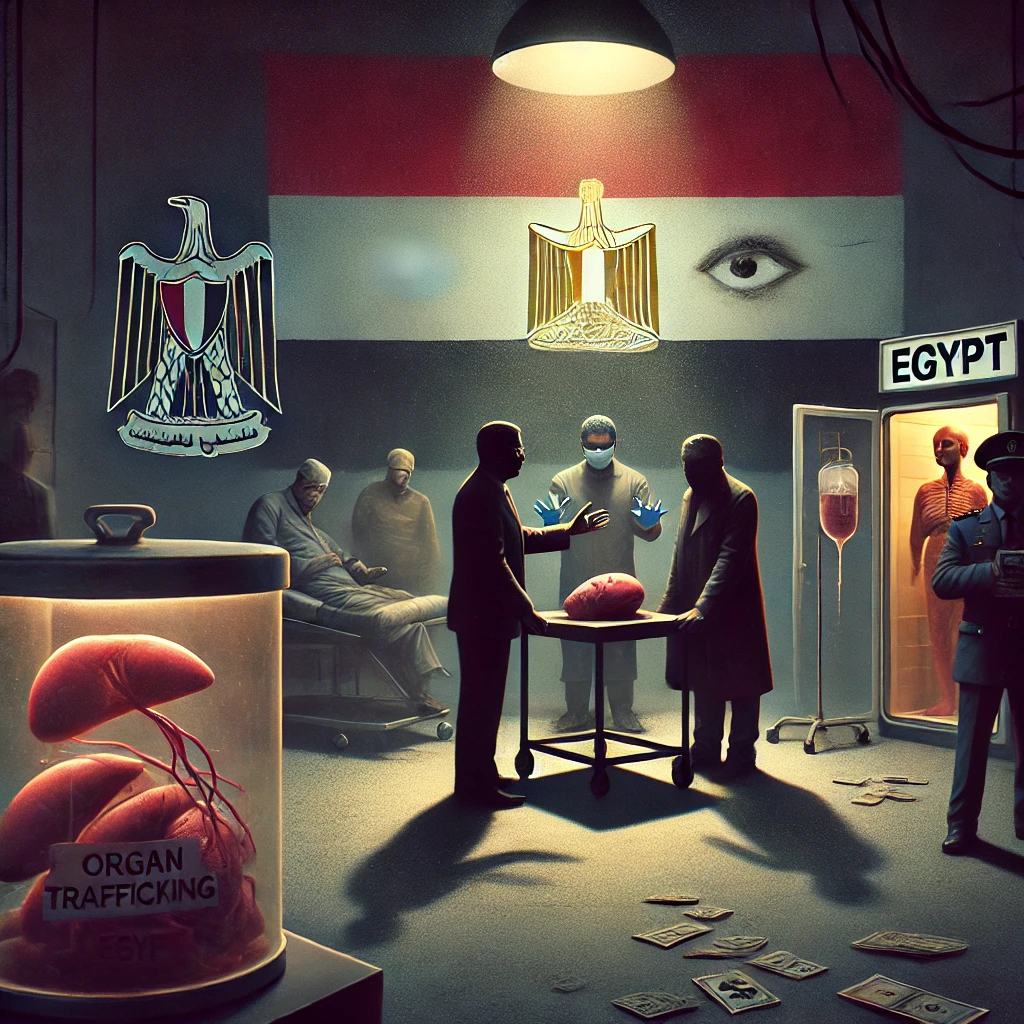Organ Trafficking And Human Rights Crises: A Case Study of Egypt

Egypt's Hidden Crisis: Organ Trafficking in the Shadows
Globally, organ trafficking is on the rise due to advancements in technology, particularly in Egypt, where 95% of organ transplants are illicit. Speaking with one of the illegal traffickers, BBC investigators confirmed that they organize 20 to 30 illegal organ trafficking operations every week. This is the testimony of a single trafficker; numerous groups participate in this inhumane activity, highlighting the extent of crises and human rights violations in Egypt. Most of the people who voluntarily or involuntarily become victims are impoverished migrants and refugees who are struggling hard to make both ends meet.
Moreover, there are three elements of trafficking explained in the United Nations Protocol to Prevent, Suppress, and Punish Trafficking, which include (i) action, (ii) means, and (iii) purpose (organ removal and selling). All these elements, such as the individuals involved in organ trafficking, are essential to establishing trafficking. If these elements remain unestablished, we are unlikely to consider them victims of trafficking.
Furthermore, a number of nations, such as Egypt, have made the sale and purchase of organs illegal, leading many victims to conceal their abuse out of fear of arrest. This is the main cause of the number of unreported cases of trafficking on an official level, which ultimately makes the combating more difficult and complex.
Globally, the demand for organ transplants in developed countries is increasing, and these demands supersede the available organs through legal means. This shortage increases the effectiveness and chances of the black market flourishing, especially in vulnerable countries like Egypt. Political instability in Egypt, which has persisted for a significant period, has resulted in poor economic conditions and widespread unemployment, leaving many residents impoverished and without a stable source of income. Such a lack of social support and insufficient income leave the impoverished people of Egypt with no choice but to risk their health and become voluntary victims of traffickers.
An Egyptian donor, while explaining these conditions, states that “giving my kidney is better than working in a furnished apartment,” or, in other words, working as a prostitute.” That is why the rate of voluntary organ trafficking is much greater than involuntary and forced organ trafficking, and the cases remain unreported because according to the Transplantation of Human Organs and Tissues Act 2010, the selling of organ trafficking in Egypt is a criminal act. The law, rife with loopholes, has also failed to effectively combat organ trafficking and the resulting human rights violations in Egypt. When these donors remain unpaid and destitute, their suffering intensifies.
Other vulnerable victims include migrants and refugees who come to Egypt either for shelter or to continue their journey to Europe. Abuse includes the removal of kidneys through coercion, inducing consent, or outright theft. One of such men, named Ibrahim, while giving an interview, states that he was tempted to be sent to Europe in return for donating a kidney, but after the donation, he was left helpless and not even in a condition to complain, as he was a refugee in Egypt and is under threat of deportation. Al Jazeera reported in 2014 that an Egyptian hospital and the Yemeni embassy in Egypt were involved in the organ trafficking of impoverished Yemenis under the promise of monetary rewards.
The entire situation encompasses violations of human rights, ranging from substandard living conditions to the absence of compensation for organ donation. People who donate their organs face various health complications, significantly impacting their right to life. However, since a person is the owner of his body and organs, he has the natural right to sell them for financial gain.
It is important to think about whether individual freedom may transcend group duty in this situation. Personal freedom is the ability to pursue one’s own life and objectives without allowing other people to interfere. Article 3 of the Universal Declaration of Human Rights provides a clear definition of this.
The state requires citizens to respect the lives of others and not jeopardize their own, even while it guarantees everyone the right to life without exception. We believe that the potential harm of organ trafficking surpasses individual rights, leading us to believe that this situation limits individual autonomy. Even doctors and other hospital staff violated the right to dignity and integrity when they consented to donate a dead person’s body or when they removed organs from patients they visited for medical issues.
Organ trafficking is a complex crime, as it often goes unreported. Additionally, the law criminalizes the victim, making it difficult for the police to identify the trafficking and bring the case to court for a criminal trial. There is a need to refine international and national laws regarding organ trafficking to remove this curse from society.
Everyone in the world has a fixed period of life after which they will die. Buying the organ for them and leaving someone in a vulnerable position does not grant eternal life. The only difference is that after an organ transplant, the recipient has a life with little difficulty regarding the functioning of their body, but the donors often endure significant suffering, impacting their quality of life.



